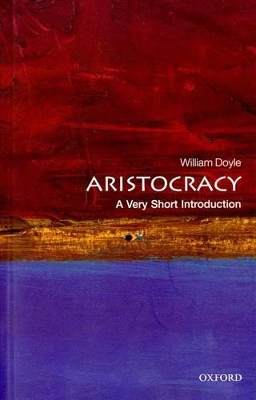Very Short Introductions
1 primary work • 2 total works
Book 54
Beginning with a discussion of familiar images of the French Revolution, garnered from Dickens, Baroness Orczy, and Tolstoy, as well as the legends of let them eat cake, and tricolours, Doyle leads the reader to the realization that we are still living with developments and consequences of the French Revolution such as decimalization, and the whole ideology of human rights. Continuing with a brief survey of the old regime and how it collapsed, Doyle continues to
ellucidate how the revolution happened: why did the revolutionaries quarrel with the king, the church and the rest of Europe, why this produced Terror, and finally how it accomplished rule by a general. The revolution destroyed the age-old cultural, institutional and social structures in France and
beyond. This book looks at how the ancien regime became ancien as well as examining cases in which achievement failed to match ambition. Doyle explores the legacy of the revolution in the form of rationality in public affairs and responsible government, and finishes his examination of the revolution with a discussion as to why it has been so controversial.
ABOUT THE SERIES: The Very Short Introductions series from Oxford University Press contains hundreds of titles in almost every subject area. These pocket-sized books are the perfect way to get ahead in a new subject quickly. Our expert authors combine facts, analysis, perspective, new ideas, and enthusiasm to make interesting and challenging topics highly readable.
ellucidate how the revolution happened: why did the revolutionaries quarrel with the king, the church and the rest of Europe, why this produced Terror, and finally how it accomplished rule by a general. The revolution destroyed the age-old cultural, institutional and social structures in France and
beyond. This book looks at how the ancien regime became ancien as well as examining cases in which achievement failed to match ambition. Doyle explores the legacy of the revolution in the form of rationality in public affairs and responsible government, and finishes his examination of the revolution with a discussion as to why it has been so controversial.
ABOUT THE SERIES: The Very Short Introductions series from Oxford University Press contains hundreds of titles in almost every subject area. These pocket-sized books are the perfect way to get ahead in a new subject quickly. Our expert authors combine facts, analysis, perspective, new ideas, and enthusiasm to make interesting and challenging topics highly readable.
Aristocracies or nobilities dominated the social, economic, and institutional history of all European counties until only a few generations ago. The relics of their power, in traditions and behaviour, in architecture and the arts, are still all around us.
This short introduction shows how ideas of aristocracy originated in ancient times, were transformed in the middle ages, and have only fallen apart over the last two centuries. The myths in which aristocracies have always sought to shroud themselves are stripped away, but the true sources of their enduring power are also revealed. Their outlook and behaviour affected the rest of society in innumerable and sometimes surprising ways, but perhaps most surprising was the way in which a
centuries-old aristocratic hegemony crumbled away over the last two hundred years. In this Very Short Introduction William Doyle considers why this happend and what remains today.
ABOUT THE SERIES: The Very Short Introductions series from Oxford University Press contains hundreds of titles in almost every subject area. These pocket-sized books are the perfect way to get ahead in a new subject quickly. Our expert authors combine facts, analysis, perspective, new ideas, and enthusiasm to make interesting and challenging topics highly readable.
This short introduction shows how ideas of aristocracy originated in ancient times, were transformed in the middle ages, and have only fallen apart over the last two centuries. The myths in which aristocracies have always sought to shroud themselves are stripped away, but the true sources of their enduring power are also revealed. Their outlook and behaviour affected the rest of society in innumerable and sometimes surprising ways, but perhaps most surprising was the way in which a
centuries-old aristocratic hegemony crumbled away over the last two hundred years. In this Very Short Introduction William Doyle considers why this happend and what remains today.
ABOUT THE SERIES: The Very Short Introductions series from Oxford University Press contains hundreds of titles in almost every subject area. These pocket-sized books are the perfect way to get ahead in a new subject quickly. Our expert authors combine facts, analysis, perspective, new ideas, and enthusiasm to make interesting and challenging topics highly readable.

